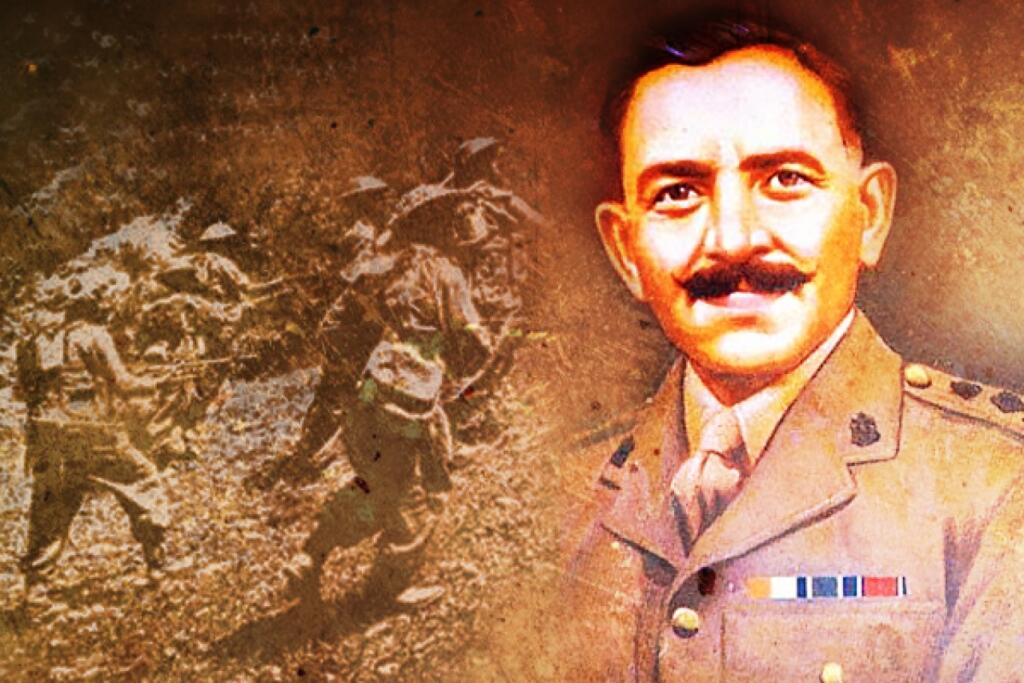The early hours of October 22, 1947, spelled death for the ancient land of Kashmir. Invaders from the northern tribal ranks with Pakistan behind them were drawing dangerously close to Srinagar, the heart of Jammu and Kashmir. Maharaja Hari Singh, the ruler of the princely state, now found himself in a catch-22 situation—either to permit the seizure of his country without a fight or offer bloody resistance to protect the jewel of Kashmir—Srinagar—from looming danger. He finally sought advice from a trusted officer-Brigadier Rajinder Singh Jamwal-for help to defend the land.
Rajinder Singh was known for gallantry and strategy; a decorated and loyal soldier of the Jammu and Kashmir State Forces, he felt it was a defining moment. In a high-stake situation where Srinagar was at stake, Brigadier Singh was supposed to bring about the crowning toughness, yet be an almost impossible task to defend against enemy advance till Indian troops arrived for relief. Thus his orders were loud and clear—defend Kashmir on any terms.
On the night of October 23, 1947, Singh led a small force of 150 men against the town of Uri towards which the invaders were pressing. Given the overwhelming odds against him, he knew this would be a contest of endurance, courage, and sacrifice. His men took position on rugged hills and narrow passes, in a location just right to defend the only road connecting Uri with Srinagar.
Between October 23 and 26, Brigadier Singh, as also his men, put up a brilliant fight against wave after wave of tribal attackers. Every inch of land was fought for, every bullet counted, and every life mattered. Singh was unwavering in his resolve. Unabatedly, the enemy attacked, yet the brigadier stood firm with his men, unyielding, a veritable wall.
And as the enemy was still pounding Rajinder Singh, there came an SOS signal from Maharaja Hari Singh. The Maharaja stood on the verge of signing the Instrument of Accession formally, on the time ticking fast. Despite the fact that the capital, Srinagar, was just a stone’s throw away from the invaders, Kashmir’s future hung in the balance. If Srinagar fell, the Maharaja would not remain with any option.
Outnumbered and with little remaining ammunition, Brigadier Singh kept his men going courageously. His orders were simple: “Fight till the last man and the last bullet.” True to his words, Rajinder Singh set the example and sealed the front with that strength and courage which would go on to acquire the status of legend. However, he was mortally wounded on October 26, 1947, during a tremendous exchange of gunfire. His men continued to fight on, but now it was time for self-sacrificing relinquishment.
However, by then, against all odds, the unthinkable was going to become true. On October 26, the Maharaja signed the Instrument of Accession, and the Indian Army started airlifting troops into Srinagar the very next morning. Rajinder Singh and his brave fellows had only just bought time to save Kashmir from falling into enemy hands.
In recognition of his unmatched courage and selfless sacrifice, Brigadier Rajinder Singh was posthumously awarded the Maha Vir Chakra, the highest gallantry award of India. On December 30, 1949, he was hailed the “Saviour of Kashmir,” a title he gained through blood, valor, and unyielding spirit.
Brigadier Rajinder Singh’s story is not just a battle; it is about valiance opposed to an overwhelming force, about duty, and sacrifices made to safeguard a homeland. His legacy lives on in Indian military annals, forever considered the towering figure who saved Kashmir.
